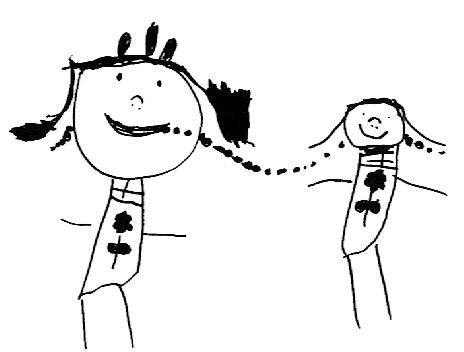“When ideas meet with hands, extraordinary things happen.
Thoughts give shape to the materials and the materials remodels the thoughts and then the things we do grow along with our own growing.”
Salvador Allende Preschool Identity Book
The Hundred Languages is a pedagogical strategy for the construction of concepts and the consolidation of understanding, a way of structuring knowledge and organising learning. The Hundred Languages are described as being expressive, communicative, symbolic, cognitive, ethical, metaphorical, logical, imaginative and relational.
Although verbal language is recognised as being very important, particularly in negotiating, Reggio educators believe that many educational systems restrict children to the verbal/linguist means of communication. By contrast the Reggio pedagogy recognises and supports “The Hundred Languages…and a hundred, hundred more” (Loris Malaguzzi).
Reggio educators suggest that this theory, initiated by Loris Malaguzzi is parallel with the work of Howard Gardner of Project Zero and his theories of Multiple Intelligences.
The employment of an artist (atelierista) in each of the preschools and the sharing of an artist across infant/toddler centres provides an additional possibility for collaborations. Their knowledge of materials and a different way of viewing learning offers children rich resources and skills in many languages.
Initially children explore, experiment and play with these materials, but they are also supported in developing skills and to eventually become literate in many different media to assist in concept development and in extending understanding.

